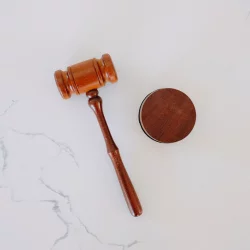Criminal Conviction Appeals: What You Need to Know Before Filing Your Appeal
There is little more terrifying in this life than the moment you are arrested and escorted to a jail cell. Suddenly you will lose all control over your surroundings and even your ability to do things.
It is possible to argue that this is a result of your own behavior but that will not make it less terrifying. It can be ten times worse when you’re innocent and yet you are still found guilty at your trial.
Mistakes and miscarriages of justice do happen, no system is perfect. Worrying a recent survey showed that 1 in 25 people sentenced to death in the US are actually innocent.
This is why it is essential to get the best Criminal attorney in Orange County or elsewhere that you can. You need a good defense and a good appeal if necessary.
The number of people appealing is unsurprisingly high. In fact, 77% of cases heard at the appeals court are in relation to judgments given by the district courts.
This is why you need to know these facts before you start your appeal:
- 10 Days
You have just 10 days to file your appeal. If you don’t file in this time then you have no right to appeal the court’s verdict. Don’t delay with filing your notice of appeal.
You might be pleased to hear that a prosecutor cannot appeal a verdict if you are found innocent.
- Evidence
An appeal court does not operate in the same way as the trial court. This is not an opportunity to reopen the case and discuss all the evidence again.
The appeal court trusts the initial court to have reviewed the evidence properly and delivered a fair verdict.
The purpose of appeals is to attack the verdict given on a legal ground. This could be that the evidence was not collected fairly, a due process was not followed or that the trial court was unreasonably prejudiced.
The evidence from the original trial is made available to the appeal court but no new evidence is permitted.
- It Is Written
The traditional trial court involves lots of interviews and statements from your lawyer. The appeal court does not. The majority of the cases are laid out in writing with the lawyers publishing a short brief regarding why the appeal should be heard.
There may be a few questions but most of the case is a review of the procedures followed.
This is why it is behind closed doors without reporters.
- Its Slow
The appeals courts are inundated with cases. It can take months or even years for your appeal to be heard. Although computers have helped to increase the speed at which each case is reviewed it is still slow as every part has to be reviewed individually.
The secret to succeeding at appeal is to create a brief with a compelling legal argument why the original decision was tainted. For this you must know case law and be able to apply it to the original trial. Only then will orally arguments be heard and your chance of a successful appeal dramatically increases.
More to Read:
Previous Posts:



